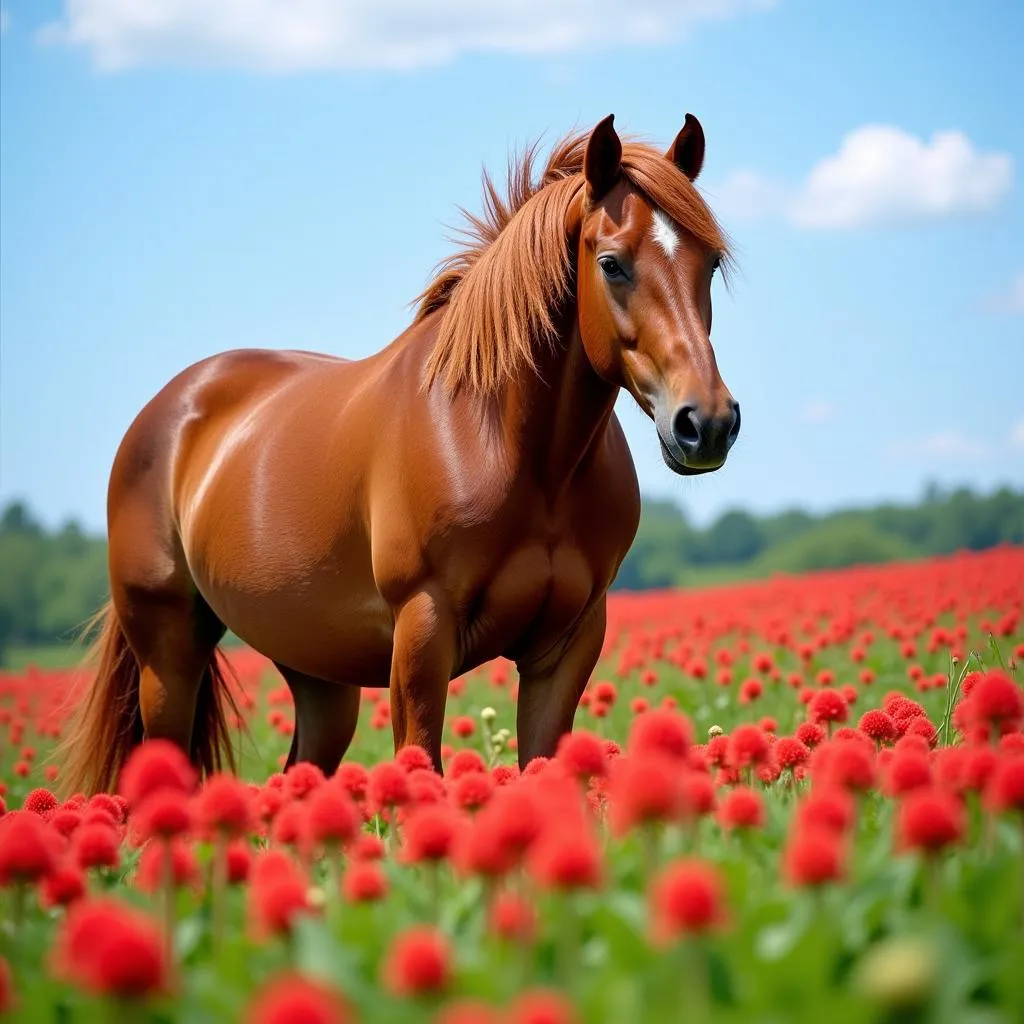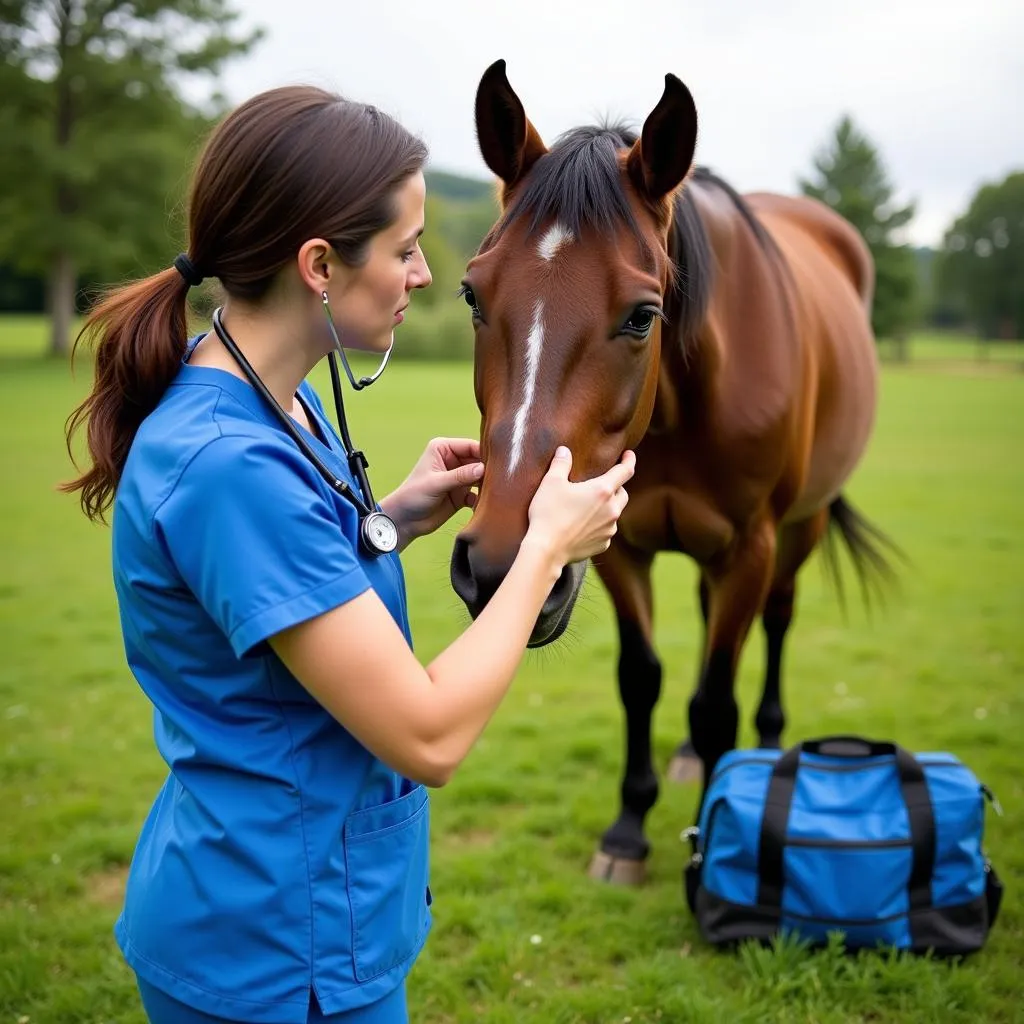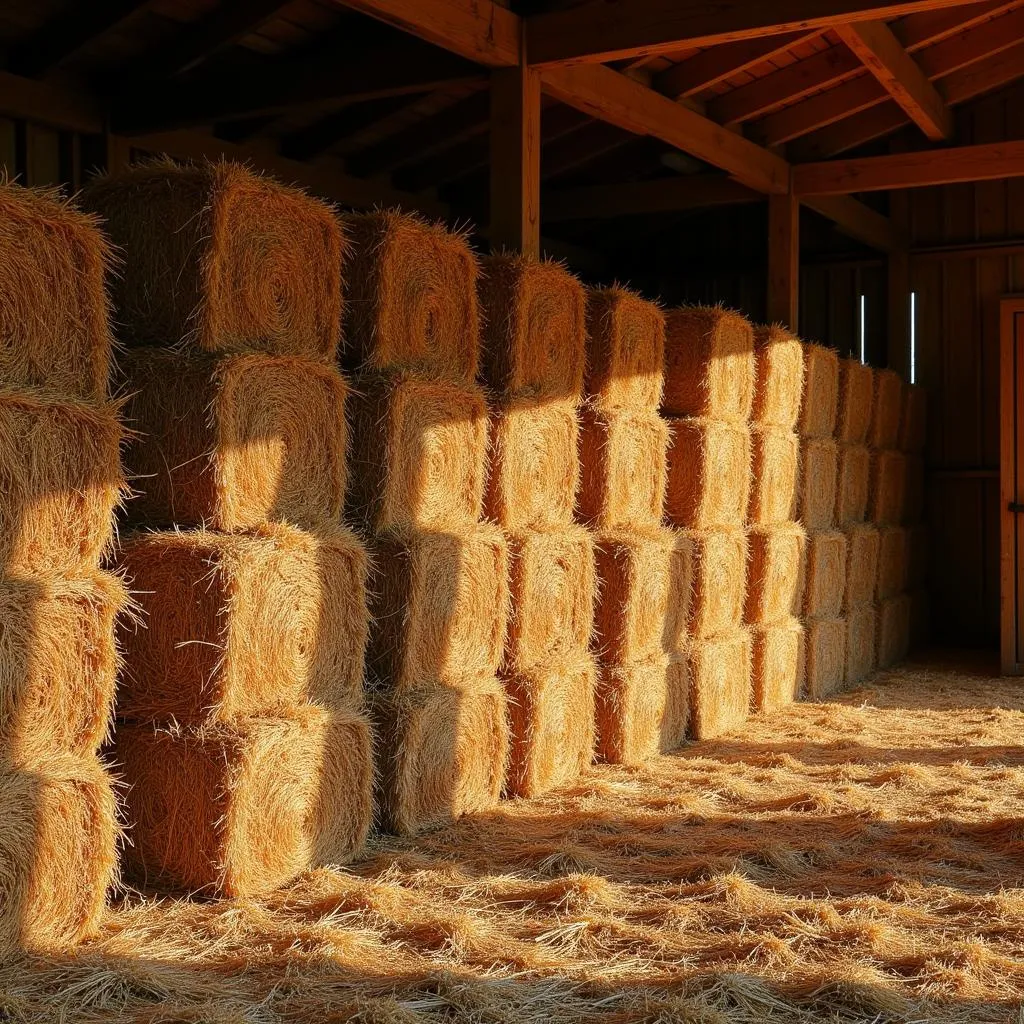Red Clover For Horses is a topic that often sparks debate among horse owners. This vibrant legume, commonly seen in pastures and hay fields, offers potential benefits as a forage source, but it’s crucial to understand both its advantages and disadvantages. This comprehensive guide will delve into the uses of red clover for horses, weighing the pros and cons to help you make informed decisions about your horse’s diet.
Nutritional Value of Red Clover for Horses
Red clover offers a good source of several essential nutrients for horses:
- Protein: Higher in protein compared to some other common forages like grass hay, making it potentially beneficial for growing horses, lactating mares, or those with higher protein needs.
- Fiber: Provides a decent amount of fiber, essential for maintaining a healthy digestive system in horses.
- Vitamins and Minerals: Contains essential vitamins like Vitamin A and E, and minerals like calcium. It’s also a natural source of isoflavones, which have been linked to various health benefits.
 Horse Grazing Red Clover Field
Horse Grazing Red Clover Field
Potential Benefits of Red Clover for Horses
Including red clover in your horse’s diet can offer certain benefits:
- Weight Gain: The higher protein and calorie content in red clover can support healthy weight gain in horses that need it.
- Improved Milk Production: For lactating mares, the increased protein content can help support milk production.
- Respiratory Health: Some horse owners believe that red clover can help soothe and improve respiratory health in horses, though more research is needed in this area.
Potential Risks and Considerations of Feeding Red Clover
While red clover can offer benefits, it’s important to be aware of potential risks:
- Bloat: Like other legumes, red clover can increase the risk of bloat in horses, a potentially life-threatening condition.
- Photosensitization: Red clover contains a substance that can make some horses more sensitive to sunlight, leading to skin irritation or sunburn-like symptoms.
- Blood Clotting: In some cases, red clover might interfere with blood clotting due to the presence of coumarin, a naturally occurring blood thinner.
 Veterinarian Examining Horse in Pasture
Veterinarian Examining Horse in Pasture
How to Safely Feed Red Clover to Horses
Here are some guidelines for safely incorporating red clover into your horse’s diet:
- Introduce Gradually: As with any feed change, introduce red clover gradually to allow your horse’s digestive system to adjust. Start with small amounts mixed in with their regular hay.
- Monitor for Issues: Keep a close eye on your horse for any adverse reactions, such as digestive upset, skin sensitivity, or changes in behavior.
- Choose High-Quality Hay: Opt for red clover hay that’s clean, free of mold, and harvested at the right maturity stage.
- Consult Your Veterinarian: Before making any significant changes to your horse’s diet, it’s always best to consult with your veterinarian. They can provide personalized advice based on your horse’s individual needs and health status.
Red Clover in Pasture vs. Hay
Red clover can be part of a horse’s diet through grazing or as dried hay.
- Pasture: If allowing your horse to graze on red clover pasture, ensure it’s not the dominant plant species. Rotational grazing and mixed pastures can help minimize risks.
- Hay: Red clover hay should be properly dried and stored to prevent mold growth. Ensure it’s a small part of the overall hay ration.
 Red Clover Hay Bales Stacked in Barn
Red Clover Hay Bales Stacked in Barn
Conclusion
Red clover can be a beneficial addition to a horse’s diet when fed responsibly and in moderation. Always prioritize your horse’s individual needs and consult with your veterinarian to determine if red clover is an appropriate forage choice. By understanding the potential benefits and risks, and following safe feeding practices, you can help ensure your equine companion reaps the potential rewards of this nutritious legume.
FAQs About Feeding Red Clover to Horses
1. Can I feed red clover to my pregnant mare?
Consult your veterinarian first. While red clover can be beneficial, it might not be suitable for all pregnant mares due to potential blood-thinning properties.
2. How much red clover can I give my horse?
Introduce it gradually and always in moderation. Start with small amounts mixed with their regular hay and monitor for any adverse reactions.
3. What should I do if my horse shows signs of photosensitivity?
Contact your veterinarian immediately. Remove access to red clover and provide shade and supportive care as directed by your vet.
4. Is red clover safe for all horses?
Not necessarily. Horses with certain health conditions, such as clotting disorders or a history of bloat, should avoid red clover.
5. What are some alternatives to red clover for horses?
Other legume options include alfalfa (lucerne) and birdsfoot trefoil. Consult with your veterinarian or an equine nutritionist to determine the best forage options for your horse.
Need more guidance on equine nutrition and care? Contact Justus Horses USA at 0772127271 or email [email protected]. Our team of experts is available 24/7 to assist you. You can also visit our location at QGM2+WX2, Vị Trung, Vị Thuỷ, Hậu Giang, Việt Nam.